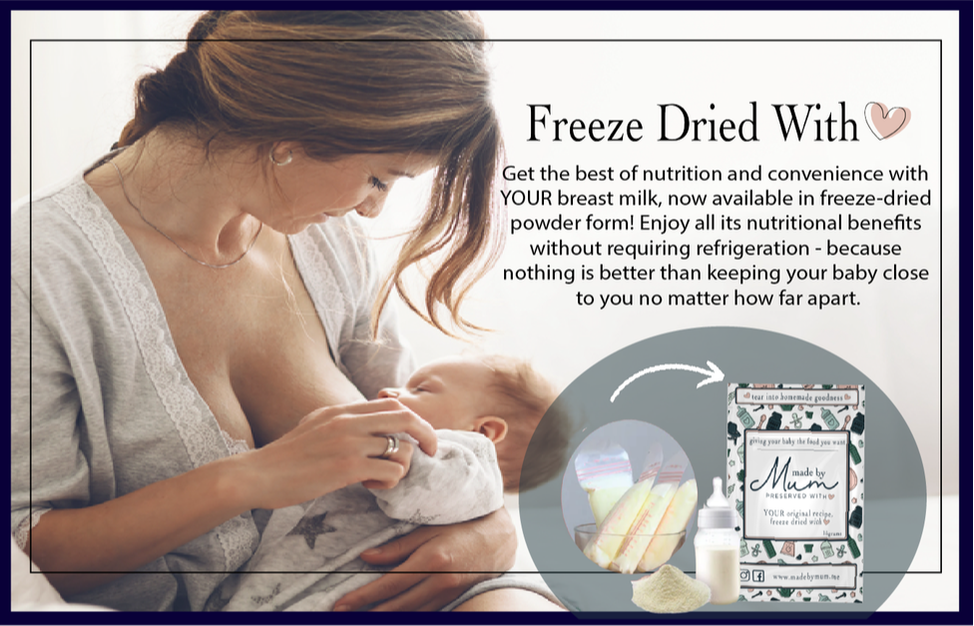
Moms are always looking for ways to give their babies the best start in life. Many turn to breastfeeding as a way to provide their child with optimum nutrition. But what exactly is in breast milk? Let’s take a closer look at the nutrients found in this incredible substance.
Uncovering the Vital Nutrients in Breast Milk
Breast milk is an incredibly rich source of key nutrients that are essential for infant development. It contains all the essential amino acids, fatty acids, vitamins and minerals necessary to ensure healthy growth. Babies’ bodies are specially designed to process and absorb the nutrients that breast milk provides. During infancy, babies rely on the immune-supporting immunoglobulins and proteins in breast milk to help fight off viruses and bacteria. There are also visual benefits as babies who are exclusively breastfed tend to have significantly better vision than those who are formula fed. All these components combine to make this natural diet ideal for a baby’s overall health needs in their earliest years of life.
Discovering the Nutritional Treasure Trove in Breast Milk: An Overview of its Key Components
One of the most valuable nutrients a child can get is breast milk. Rich in essential vitamins and minerals, breast milk contains one of the most nutrient-dense combinations of substances found in any food or beverage. Important ingredients include proteins such as lactoferrin and immunoglobulins along with multiple types of vitamins like A, B1, B2, B6, B12 and much more. Healthy lipids such as cholesterol, EPA (an omega 3 fatty acid) and oleic acid are also found naturally within the human milk composition. Breast milk also contains carbohydrates for energy production in the form of galactose and lactose. Crucial minerals like calcium, phosphorus, sodium and zinc are yet another component needed for a healthy childhood development that can be achieved from regular consumption of breast milk.
Unpacking the Health Advantages of Each Nutrient
Eating a nutritious diet that incorporates all five food categories is essential for overall health and well-being. Each food category contains numerous helpful nutrients and vitamins which have their own individual health benefits. Carbohydrates provide the body with energy, fiber aids digestion and helps to regulate cholesterol, fats act as a source of energy and helps the body absorb vitamins, proteins build muscle mass and help create enzymes, hormones, and antibodies in the body, and lastly vitamins help the body fight off diseases. Each nutrient assists in different bodily functions yet they each help contribute to better physical health. Eating a variety of foods that include all these different nutrients is key in creating a balanced diet that will fuel your body with everything it needs while also improving overall health.
The Vital Significance of Breast Milk: A Summary of its Benefits for Infants and Mums
Breast milk is vitally important for the health of both infants and mothers. Studies have demonstrated that breastfed babies are at a lower risk for respiratory illnesses, infections, obesity, and other chronic illnesses. It also helps promote healthy cognitive development in young children, possibly leading to higher intelligence later in life. From the mother’s perspective, breastfeeding has been associated with reduced risk of postpartum depression, improved maternal bonding with an infant, relief from menstrual cramping, and decreased risk of premenopausal breast cancer. As such, it is fair to say that breastfeeding provides unique physical and emotional benefits to both mother and child alike.
The Best Natural Alternatives to Breastmilk
Breast milk is the ideal source of nutrition for infants, providing all the essential nutrients necessary for their growth and development. However, there may be situations where breastfeeding is not possible or practical, such as when a mother is returning to work or is unable to produce enough milk. In such cases, freeze-dried breast milk can be a suitable alternative.
Freeze-drying breast milk involves removing the moisture from breast milk, which can be stored for an extended period without losing any of its beneficial properties. This process preserves all the essential nutrients and immune-boosting factors present in breast milk, making it a safe and effective alternative for infants.
Freeze-dried breast milk can also be a convenient option for mothers who want to continue providing their babies with the benefits of breast milk even when they are not available to breastfeed. It can be used in situations where breastfeeding is not possible, such as when a mother is away from her baby, traveling, or has to undergo medical treatment.
One of the significant advantages of freeze-dried breast milk is that it is easy to use. It can be stored for an extended period without the need for refrigeration, making it an ideal option for mothers who need to travel with their breast milk. Once ready for use, the freeze-dried breast milk can be reconstituted by adding water, and it will be as nutritious and beneficial as fresh breast milk.
In conclusion, freeze-dried breast milk is a safe and effective alternative to fresh breast milk, providing all the essential nutrients necessary for infant growth and development. It is a convenient option for mothers who want to continue providing their babies with the benefits of breast milk, even when they are not available to breastfeed.


